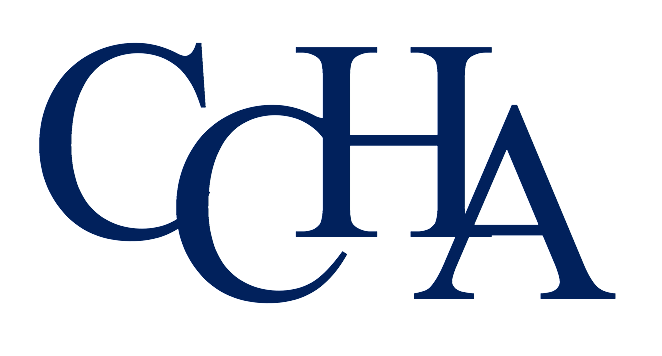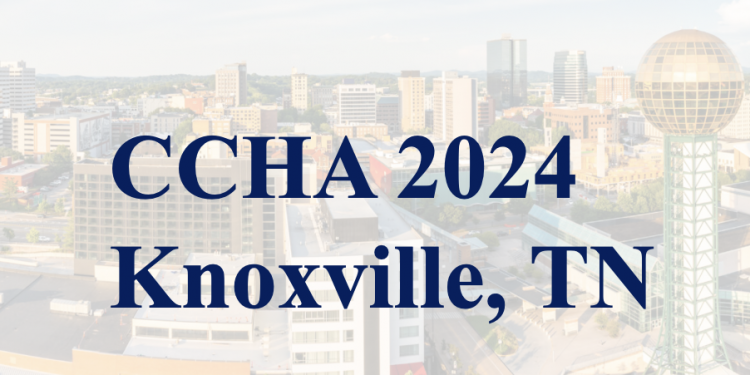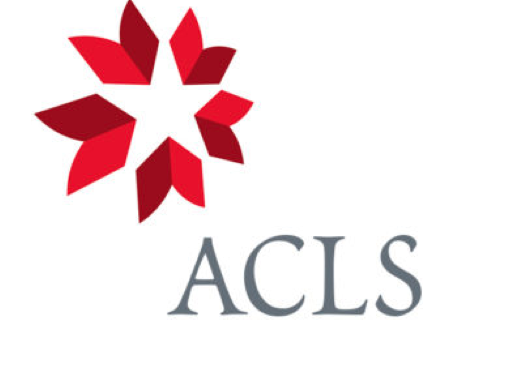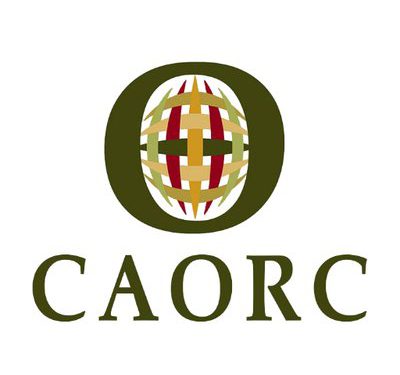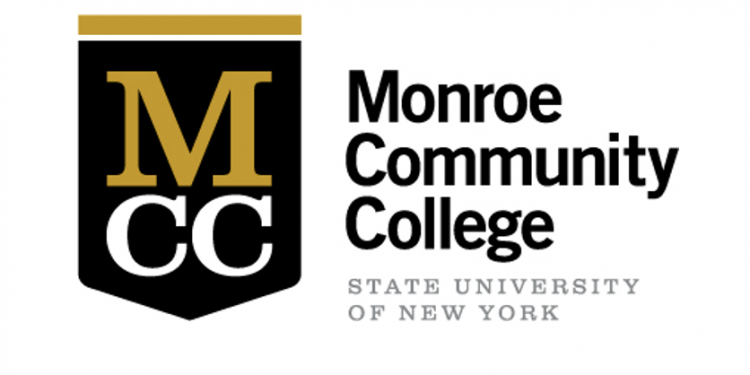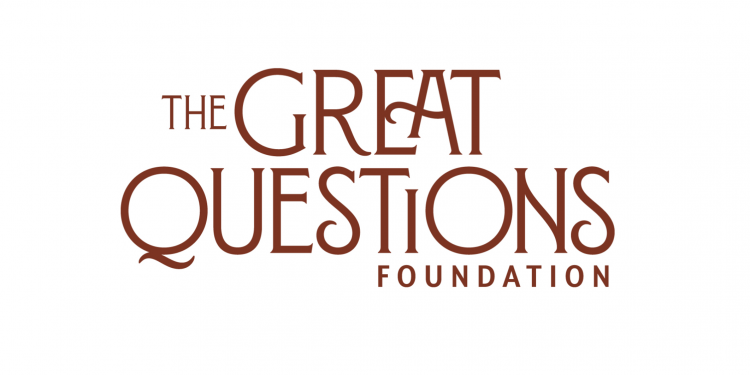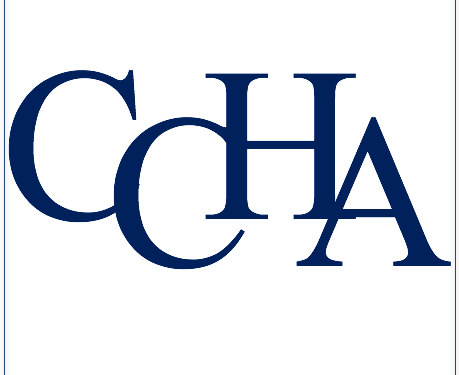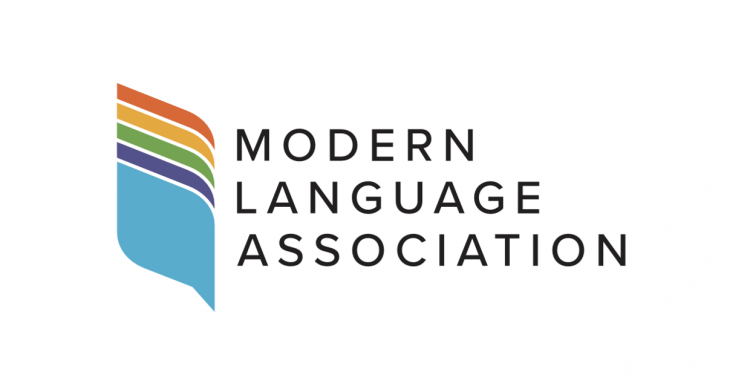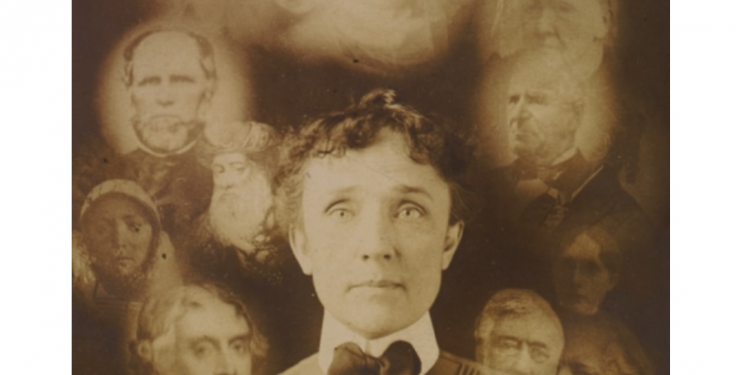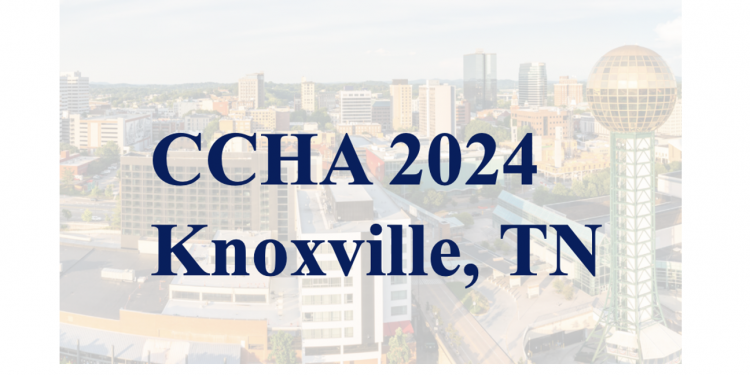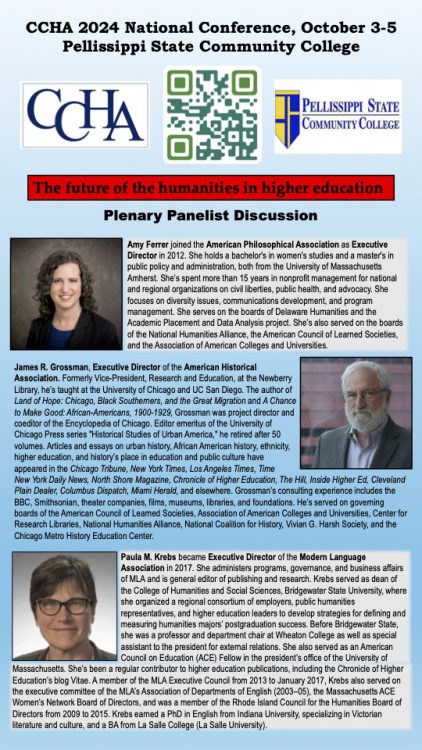Welcome to the Blog!
Whether you are a casual fan of the humanities or teach in the humanities in one of the nation’s community colleges, we would like to welcome you to the blog for the Community College Humanities Association. Feel free to poke around, read, and even submit content for future publication, which can be facilitated on this blog or in our Community College Humanities Review journal.
Please also note that the page you are currently viewing is a combination of both the Discourse Blog and the Member Discussions, either of which can be viewed separately.
Thank you, Knoxville: Resources and Information from the National Conference
Thank you, Knoxville: Resources and Information from the National Conference
We want to thank everyone for another truly wonderful CCHA National Conference! We enjoyed your presentations and scholarship, and we loved the sights and sounds of Knoxville, which even included a Pride parade at our doorstep on Friday. Knoxville truly is a dynamic and diverse city! Please be sure to check out the link below for more on opportunities and information from our three amazing Friday plenary speakers and others. We’ll be in touch with more CCHA events and opportunities in the coming months, and we can’t wait to see everyone next year at Lane Community College in Eugene, Oregon!
American Council of Learned Societies (ACLS)
The following information provided by Nike Nivar and John Paul Christy:
Modern Language Association (MLA)
The following resources were mentioned by Paula Krebs:
- Referenced studythehumanities.org
- Referenced humanitiesindicators.org
- The MLA’s Institutes for Reading-Writing Pedagogy at Access-Oriented Institutions
- MLA Pathways grants
- MLA Committee on Community Colleges
American Philosophical Association (APA)
The following resources were mentioned by Amy Ferrer:
- Info on APA’s virtual meeting early next year
- Info on APA’s Teaching Hubs
- APA Departmental Services Program
- APA Live online event series and APA On Demand Video Library
- APA Committee on Philosophy in Two-Year Colleges (plus, APA committee and board nominations are now open)
American Historical Association (AHA)
The following resources were mentioned by James Grossman:
- Regarding non-tenure-track faculty recommendations: Improving the Status of Non-Tenure-Track Faculty: Recommendations for History Departments
- AHA’s “Guidelines for Broadening the Definition of Historical Scholarship.”
- AHA’s upcoming annual conference in NYC (January 3-6)
National Endowment for the Humanities (NEH)
The following resources were shared by Julia Nguyen
- NEH’s new website has a page with resources for community colleges: https://www.neh.gov/our-work/community-colleges
- The review process: https://www.neh.gov/grants/application-process
- Sign up to be a reviewer: https://apps.neh.gov/signup/
- Signing up for our newsletter, which will give you a sense of our activities, rhythms, and opportunities (Archive available)
- Reading our recent Annual Report and summaries of quarterly board meetings (Governance)
- Explore our membership directory for potential partner institutions in your region and worldwide
- Participating in our Initiatives, and apply for up to $15,000 in funding for theme-relevant program and projects
- Applying for funding of up to $10,000 from our Membership Activity Fund for collaborations with other centers and institutes
- Finding scholarly and administrative connections in our Networks, which include the Public Humanities and Environmental Humanities
- Informing the wider membership of your events and opportunities
- Participating in our Humanities Leaders Mentorship Program
- Applying for a scholarship to attend our Annual Meeting
- Hosting a CHCI-ACLS fellow
- Requesting data reports and analysis on the CHCI membership from staff
NHA Webinar: Attracting Students to the Liberal Arts Through Integrative Curricula
We are pleased to announce a webinar launching our newest report, entitled Attracting Students to the Liberal Arts Through Integrative Curricula, on October 24th. The report includes 12 in-depth case studies and 20 brief profiles. The highlighted initiatives integrate the humanities, social sciences, and/or natural sciences with applied approaches and pre-professional training, helping to demonstrate the value of a broad-based education to skeptical students. The report was researched and produced thanks to a generous grant from the Arthur Vining Davis Foundations.
The webinar will take place from 2–3 pm ET. We will offer broad takeaways from this national study and hear from project leaders representing three of the featured initiatives.
Panelists include:
- Miriam Horne, Professor and Assistant Dean for Adjunct Support in the Core Division, Champlain College
- Tracy Leavelle, Director, Kingfisher Institute for the Liberal Arts and Professions, Creighton University
- Gayle Rogers, Andrew W. Mellon Professor of English and Department Chair, University of Pittsburgh
The panel will be moderated by Scott Muir, NHA’s director of undergraduate initiatives.
Learn more about the webinar and register here.
ACLS Fellowship & Research Opportunity for CC Humanities Faculty
|
||||||||
|
Opportunity: CAORC-NEH Research Fellowship (Deadline 1/15)
The CAORC – National Endowment for the Humanities Research Fellowship is accepting applications! This fellowship provides the opportunity for scholars to carry out advanced research in the humanities and to spend significant time in one country with an Overseas Research Center as a base. Approximately three to four awards will be granted and fellowship stipends are $5,000 per month for four to six consecutive months.
Fields of study include, but are not limited to, anthropology, history, philosophy, archaeology, linguistics, religious studies, languages, literature, literary criticism, ethnomusicology, and art history. In addition, research that embraces a humanistic approach and methods will be considered.
Applicants must hold a PhD or a terminal degree, or have completed all requirements, except for the actual conferral of the degree, by the application deadline. Applicants must be US citizens or foreign national scholars who have been resident in the US for at least three years. Please see the fellowship guidelines for more information.
Minority scholars and scholars from Minority-Serving Institutions are encouraged to apply.
Annual McMurry Lecture: 10/28 from Monroe CC English & Philosophy Dept.
The Monroe Community College English & Philosophy Department is pleased to announce the annual McMurry Lecture by. Lynn Sebastian Purcell, Associate Professor of Philosophy at SUNY Cortland.
Save the Date: Oct. 28, 3:30 to 5:00, Monroe B
Livestream: McMurry Lecture 2024
Professor Purcell’s topic is The Aztec’s 5-Fold Path to A Good Life
The Aztecs had a robust philosophical tradition that, unlike what popular culture suggests, was centered on learning to live a cooperative life well. This path had five parts. First, you must recognize that each of us slips up and errs. Second, we do this because we are unbalanced. Third, the solution to this lack of balance is to grow deep roots in our communities and with our dearest friends. Fourth, this is done through exercising the virtues of prudence, humility, justice, moderation, and courage. Finally, you must engage in a series of drills–sometimes called spiritual exercises–to form the right habits of those virtues. Their view is both strikingly like Aristotle’s yet at each moment differently focused.
Livestreamed at McMurry Lecture 2024
For more information, contact Robert L. Muhlnickel at rmuhlnickel@monroecc.edu.
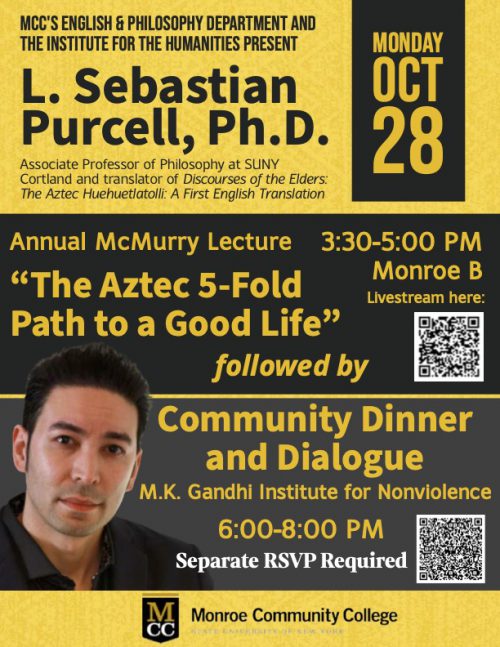
The Great Questions Foundation Faculty Fellowship Program
Application Deadline: October 15th, 2024
Community college faculty members are invited to assemble a team at their institution and apply to collaborate in this national project to expand discussion-based liberal education opportunities for community college students. Join your colleagues in this movement to make general education liberal education at community colleges.
Funded by a generous grant from the Mellon Foundation, The Great Questions Faculty Fellowship program will place 20 community college faculty members who teach general education courses in a two-year faculty leadership incubator, positioning them at the creative center of discussion-based and student-centered pedagogy in the liberal arts. Fellows will work to redesign a frequently taught course to center the discussion-based study of transformative works and ideas while exploring and practicing discussion-based pedagogies, and active, collaborative, and reflective assignment design with faculty leaders. Each Fellow will develop their capacity as institutional leaders and will organize at least one humanities-centered event at their institution with TGQF’s support. Additionally, Fellows will have the opportunity to apply for grants from TGQF of $5,000 – $40,000 to support the further development of humanistic inquiry in the liberal arts at their institutions.
Along with regular online workshops, engaging with invited community college faculty leaders in liberal education work, Fellows will convene in two in-person meetings during their fellowship tenure, one held in Austin, Texas, and another at a Fellow’s home institution, to-be-determined. All travel costs for these meetings, including hotel, flights, and group meals will be covered by TGQF.Each fellow will receive a $5,000 stipend for their full participation in the fellowship program.
Prospective Fellows who teach in the humanities and humanistic social sciences at community colleges are encouraged to apply as campus teams of 3-4 faculty. The application deadline is October 15th, 2024.
Find out more and apply here: https://www.tgqf.org/fellowship/. If you have any questions about this opportunity, please let me know. I’d be grateful if you would please share this opportunity widely within your networks of community college faculty colleagues.
Thanks!

Ted Hadzi-Antich Jr.
Executive Director
The Great Questions Foundation (501c3)
CCHA 2024 Knoxville, TN: A Message from the Executive Director Rusnak
A word about Tennessee from CCHA Executive Director Andrew Rusnak:
A very small minority of humanities faculty has recently expressed some concern about holding National CCHA Conferences in cities and states that they perceive to have, let’s just say, political track records not very conducive to the sensibilities we advocate as humanities professors. The selection process for CCHA national conferences is somewhat arbitrary and relies heavily on those who graciously step-up, volunteer their campuses, their very limited time and energy, and their fellow colleagues to navigate the infinite logistics that go into planning a national event where Murphy’s law always seems to dominate. For this we should be very grateful. Last year we were in Austin, and this year we are in Knoxville. I can’t tell you how gracious, knowledgeable, and understanding the community college humanities administrators and professors who teach there are. I certainly learned a great deal working closely with them, and I hope we established long-term friendships. These fellow faculty colleagues and champions of the humanities live and work in cities and states that promote culture and policies that may or may not jive with the thinking of many of the rest of us. But there is no way, in my mind, they should be in any way punished for that, and we should not turn our backs on them. Anyone who does I would submit, does not understand the full depth of “humanities thinking.” We should in fact, pull over and see if they are ok, we should be eager to understand their challenges and strategies. We should celebrate alongside them the creative and analytical approaches they take to hold onto academic freedom in what may be a challenging environment, to develop curriculum that they determine is critical, and the inordinate amount of energy they spend nurturing their students to appreciate the power that comes from knowing history, being politically informed and aware, and being able to think and write well. This profession, our profession, is highly contingent on being creative and exchanging ideas with each other. It cannot survive if we are not “a part of the main,” for “No [humanities prof] is an island.”
The process of gathering to proclaim what we do, to exchange ideas, to develop strategies or just talk shop, promotes the spirit of ethical integrity, no matter where it takes place. Professors who work in states with politics you may not agree with want the same for their students that you want, to be champions of professional, social, and civil success. If you think you are going to punish someone or something by boycotting CCHA’s venue, or any society’s or association’s conference, because it’s in a state with a current politically challenging environment, think of the hotel and restaurant workers, the Uber drivers, the shop owners, the young entrepreneur who is trying to start a bicycle or kayak city tour business, or a food truck that sells Mexican, Asian, African, or Middle Eastern food, or an art gallery that celebrates local artists, a coop, or bookshop, or whatever, all of which exists in Knoxville … think of all those who are trying to scratch out an income and create a productive and safe space, a culturally diverse and vibrant space, in which to live and work. It’s no different in your own hometown. We humanities faculty should be champions, champions of tolerance and understanding, we should speak up and push back on what we believe is wrong, but let’s be sure our focus is sharp and that we are not overlooking those who may be on the frontlines of advocating for a better world just because we want to make some noise. Not all of us are in a position to be able to choose where we live.
Come meet the faculty of Pellissippi State Community College, come meet the city of Knoxville. Let’s exchange ideas. We are centrally located in the heart of the city this year so you will have pedestrian access to just about any restaurant, pub, museum, bar, music etc … you want. Pull over. It’s time to learn about each other.
Information on the 2024 National Conference, including registration, can be found at this link.
MLA Prof. Dev. Series: Humanities Leadership for Community College Faculty
Humanities Leadership for Community College Faculty
A Professional Development Series Offered in Collaboration by MLA and CCHA
If you are an aspiring leader in the humanities at a community college—a department chair, assistant dean, or engaged faculty member—this professional development opportunity is for you!
The humanities play a critical role in the mission of two-year institutions. This virtual workshop series offered jointly by the Modern Language Association and the Community College Humanities Association will provide current and aspiring community college leaders with the tools to argue for the centrality of the humanities to that mission, advocate for the humanities on their campuses and in their communities, and design strategies in the areas most relevant to community college faculty members and students.
Humanities Leadership for Community College Faculty affords an opportunity to grow your network and to earn a leadership credential through our partnership with Credly. Seats are limited, so register soon! Special rates are offered to members of both MLA and CCHA.
Find out more information about this opportunity HERE.
Doppelgängers & Ghosts: Spiritualism and Spirit Photography
You can view the recording from this event here.
Please join us on Thursday, August 8th, at 7:00 PM EST for the speaker event: Doppelgängers & Ghosts: Spiritualism and Spirit Photography. Please also see the linked flyer below for more information.
Photography was invented and popularized during a period of enormous upheaval in political, social, technological and spiritual life- much like today. Also like today, the desire to give meaning to these enormous changes can find an outlet in new quasi-religious modes of understanding that may not stand up well to the icy blade of reason. The desires of a mass of less-than-ideally-informed believers to uncover “the real truth” can make them vulnerable to grift, hucksterism, and hoaxes.
This virtual lecture examines the rise of Spiritualism as a religious force in the 19th century, in response to the perceived failure of rationalism to account for the nebulous woo-woo of life. Photography was soon put to service to “prove” the legitimacy of Spiritualist beliefs. The tension between reality and “what’s really going on” has not abated since.
Speaker Bio:
Scott Hilton is a Distinguished Senior Lecturer at the University of Arlington, Texas in photography. He teaches Introduction to Photography, Dark Room, Staged Environments, History of Photography, Alternative Processes, and Studio Photography. He is also the Chair of the Board of Directors for the Society of Photographic Education. He received his BA in Art at the University of California, Reno and his MFA in Art at California State University, Fullerton.
Event Flyer: CCHA Doppelgangers and Ghosts Flyer
CCHA 2024 National Conference: Friday, 10/4, Plenary Panel Announced
CCHA is pleased to announce the speakers for our Friday plenary session. The panel will be comprised of Amy Ferrer, Executive Director of the American Philosophical Association (APA); James Grossman, Executive Director of the American Historical Association (AHA); and Paula Krebs, Executive Director of the Modern Language Association (MLA). See below for more info on our esteemed panel participants. More information, including the bios for our panelists, is available at the link here. While you’re there, be sure to check out the many attractions within walking distance from the conference hotel, which can also be found here. We look forward to seeing you in Knoxville in October!
